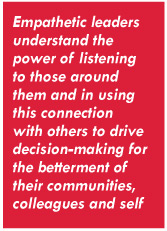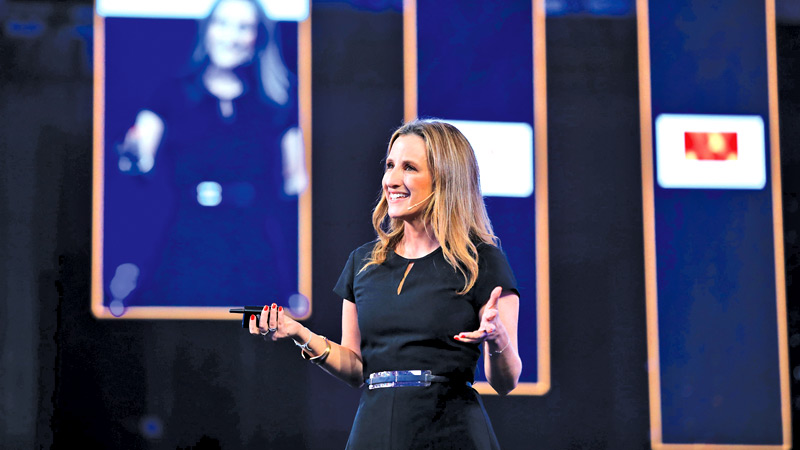 The significance of empathy and the ability to understand those who differ from us, captures global conversation, prompting discussions on its role in politics and business beyond.
The significance of empathy and the ability to understand those who differ from us, captures global conversation, prompting discussions on its role in politics and business beyond.
Empathy, a fundamental trait of effective leadership, is essential in today’s dynamic landscape and, as we face a new era ahead, it is arguably the most critical skill for rallying a nation behind a new chapter.
Empathy is one of humanity’s oldest leadership traits and is a skill that can be developed and honed by leaders and teams at any level. Empathetic leaders understand the power of listening to those around them and in using this connection with others to drive decision-making for the betterment of their communities, colleagues and self.
These leaders use empathy as their data set – in decision-making, relationship building and outcome improvement. They use it to build communities and nations, connected and interdependent.
It’s often thought that business and political leaders must be stoic and unwavering in the face of adversity but the leaders who drive the highest loyalty have been proven to be the ones who show that our mutual human understanding is far from a soft skill. Rather, it is a professional ability that few can harness authentically, to empower, navigate and overcome complex times with an aligned team and nation.
Future effective decision-making for the nation will demand the acknowledgment of our shared humanity, and community diversity, as we create the new foundations for growth and success.
Empathetic leaders understand that listening to others and reflecting on the disparate nature of opinion building, before decisions are closed, is a powerful organisational move. This act of self-awareness and self-empathy showcases the strength of empathetic leadership in prioritising elevated collective success over individual achievements.
The departure of any leader creates a gap in the realm of consistent and ‘known’ leadership. As humans we fear change instinctively. Empathy is the skill set that drives leaders (political included) to bridge those gaps and connect with those they must now take forward, regardless of differing views and opinions. This inclusion is the difference between successful progress and stagnant conflict. More importantly, it will be the skill that leads to a shared mindset for positive change, diverse and inclusive momentum and economic development.
Mimi Nicklin is an author, empathy advocate, and a CEO with over 12,500 students all over the world. Her HQ is based in Colombo and she specialises in improving dialogue, performance and engagement in forward-thinking organisations. She is the Founder of Empathy Everywhere, a training platform that uses social intelligence and team communication to drive transformational change.









